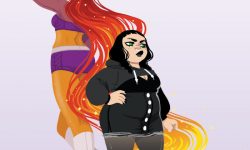The Corporate Period in the Arts, part 2

Hyperdrive Media The model which defines the corporate period could not function without two important factors. First, the model requires the ability to legally collectivize resources and use them as if they belonged to a single person. This is the concept of the corporation, with “corporate” meaning body, as in the company acts like a person and can own property like a person without being “a” person. The other critical ingredient is mass media, which allows the distribution of a media product to large numbers of people while maintaining a low cost to the end consumer. The technological revolutions of…










